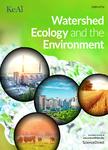版权所有:内蒙古大学图书馆 技术提供:维普资讯• 智图
内蒙古自治区呼和浩特市赛罕区大学西街235号 邮编: 010021

作者机构:Entropic Interface Group Engineering Product Development Singapore University of Technology and Design 8 Somapah Road 487372 Singapore Institute of High-Performance Computing Agency for Science Technology and Research Fusionopolis Way #16-16 Connexis 138632 Singapore
出 版 物:《Watershed Ecology and the Environment》 (Watershed Ecol. Environ.)
年 卷 期:2025年第7卷
页 面:36-46页
基 金:Agency for Science, Technology and Research, A*STAR Ministry of Education - Singapore, MOE Marine Science Research and Development program, (MSRDP-P28) National Research Foundation Singapore, NRF, (SKI 2021_02_15)
主 题:CO2 emission MgO Reactivity Reject brine Solution model
摘 要:The sustainable production of magnesium oxide (MgO) from reject brine at a desalination facility in Singapore presents a promising alternative to traditional building materials. This study investigates the properties and extraction methods of MgO derived from reject brine, focusing on environmental sustainability and resource efficiency. By utilizing a combination of thermodynamic modelling of concentrated salt aqueous solutions and experimental validation, we optimized the recovery process for Mg2+ from reject brine, achieving an impressive 99 % recovery rate to produce MgO with ∼ 98 % purity. The MgO produced, calcined at 700 °C, exhibits high reactivity and a large surface area of 58.01 m2/g, making it a highly viable option for various industrial applications. This approach addresses reject brine disposal challenges and emphasizes brine valorization, aligning with strict environmental regulations by treating both freshwater and concentrated brine as valuable products. The technology enables cost-effective reject brine treatment by recycling Mg2+ to produce sustainable Mg-based materials. A comprehensive Life Cycle Assessment (LCA) was conducted to evaluate the environmental impact of MgO production from reject brine. This analysis provides a thorough examination of the transformation process, assessing the sustainability of employing MgO in commercial applications. The findings of this study offer valuable insights for enhancing sustainability in various sectors, underscoring the promise of MgO as an environmentally friendly and cost-effective material. © 2025 The Authors